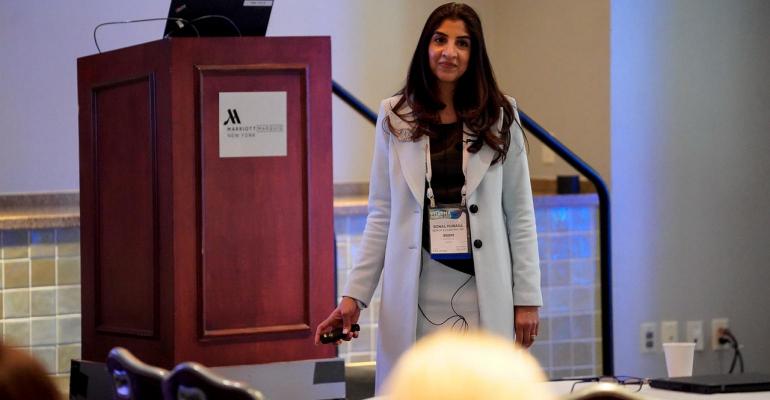With the 16th annual Pharma Forum show set for March 8-11 in New York City, show managers CBI and MeetingsNet have announced the three industry chairpersons who will help lead the 750-person event.
They are Valli Chapjian, global meetings & events regional director, Americas, global business services–global commercial operations, for AstraZeneca; Brian P. McArdle, strategic meetings management, global travel & meetings, for Celgene; and Sonal Humane, director of meeting management, research division, for Merck.
MeetingsNet recently caught up with Humane, a 26-year veteran at Merck, for a conversation about the issues affecting her meetings as well as the medical-events industry as a whole.
MeetingsNet: Over the next 12-18 months, what do you see as the biggest challenges for your division’s events?
Sonal Humane: At the forefront for me right now is modifying how we conduct the main parts of our protocol-specific training for clinical trials: our investigator meetings. For most companies, these are two days long, with the second day being the critical general-session day. That day runs from 8 a.m. until 4 p.m., with us feeding these doctors and their study nurses a stream of slides on how to conduct the clinical trial, and this is typically not conducted by someone with presentation skills as strong as a marketing person. And most of pharma thinks of this process as one and done; once the meeting ends, we all say to the doctors, “take care and good luck.”
We are trying to get away from the didactic style of training and conduct the meeting in different ways, to do things more holistically. We have pilot teams that are introducing more production elements across the slide presentation, along with more engagement and interaction. We’re also creating elements outside the general-session space—using screens to train folks on the more generic elements of the content so that the general session is strongly focused on protocol-specific elements rather than clinical research. The research element can be done with screen learning either on site or even at their offices ahead of the meeting.
We’re also asking hoteliers and planning agencies we partner with to help us reimagine the event space—maybe all four walls of the general session have projection elements or interactive elements. And we need strong Wi-Fi and routers with these new elements. We’re using tablets for instant polling and other interactive tools, so all of that needs to be supported by our partners. I’m also making decisions on things like whether we buy flat screens for my 160 meetings each year and deal with the logistics of moving them to each meeting, or do we just keep renting them.
MeetingsNet: What else are you dealing with that planners at other medical firms also face?
Sonal Humane: Meal caps are an issue we are always working on. We want to go to venues and cities that are not lavish or extravagant, but they have to meet our business needs, and that is getting tougher. Also, a lot of physicians don’t understand that their countries have these caps that we must abide. For instance, a French physician might express dissatisfaction because we only offer one meat or protein option at a meal, and we have to explain that the limit for their country is only $75. At a recent meeting, we had a buffet lunch for 15 countries but for the Belgian contingent we did a plated meal because we just could not do it any other way under their limit. So we have to educate our attendees and manage their expectations—and do it very nicely.
We are always going to have challenges like this. How planners take these challenges and turn them into opportunities by thinking outside the box is the name of the game.
MeetingsNet: As part of the content-creation team for the Pharma Forum 2020 conference, what do you see as the strength of the event?
Sonal Humane: I find it so great that we can bounce ideas off each other, because whenever we want to do something new internally the stakeholder will ask us, ‘What do other companies do in this area? How does our effort measure up to theirs?’
Every pharma firm wants to be the partner of choice for physicians, but there is still plenty of room for networking with colleagues and bouncing ideas off each other. In my experience, I’ve found that most planners are quite receptive to sharing information. We are competitors but we feel like partners in that we all struggle with the same issues. In fact, there are other examples of collaboration across the pharma industry, like Transcelerate. It’s a consortium of 22 companies where we discuss how to standardize certain tasks in the clinical research space. There is now a common protocol template used by all companies so that when the FDA looks at a protocol, it knows exactly where to find certain things. Pharma Forum operates in the same spirit as Transcelerate. In the end, we are all in this together.
Click here for the Pharma Forum 2020 event website.






